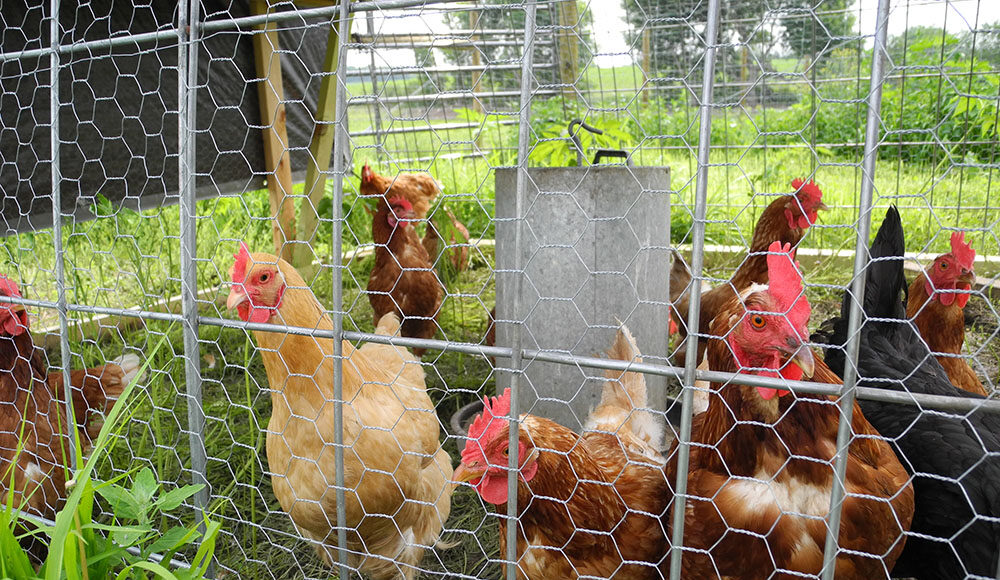For any chicken enthusiast, understanding the reasons hens stop laying can be crucial to maintaining a thriving flock. Whether you’re a seasoned farmer or just getting started, it’s important to recognize the factors affecting your hens’ egg production. In this article, we explore why hens might halt their laying and provide practical solutions to get them back on track.

Understanding Egg Production in Hens
Before diving into the specific reasons hens stop laying, it’s helpful to understand the basics of egg production. A hen’s reproductive system is sophisticated, and any disruption can lead to reduced egg output. Factors such as age, environment, nutrition, and stress can all play a role.
Aging and Its Impact on Egg Laying
Age is a common reason why hens may stop laying. As hens get older, their egg production naturally declines. Most hens start laying around six months old and can continue for several years, although productivity decreases significantly after the first two to three years.
Signs of Aging in Hens
Aging hens might show signs such as decreased activity, changes in feather condition, and reduced egg size.
Environmental Factors
Environmental conditions impact hen productivity. Changes in daylight, temperature, and coop environment can lead to hens temporarily ceasing to lay.
Light Exposure and Egg Production
Hens require a certain amount of light to lay eggs regularly. A sudden decrease in daylight due to seasonal changes can lead to a reduction in egg laying. Providing supplemental lighting during shorter days can help maintain egg production.
Temperature Fluctuations
Extreme cold or heat can also affect hens’ ability to lay eggs. Ensuring a stable and comfortable temperature in the coop can prevent stress and promote consistent laying.
Nutritional Needs
Proper nutrition is paramount to keep hens healthy and productive. A lack of essential nutrients can lead to decreased egg production or even cessation.
Essential Vitamins and Minerals
A balanced diet including calcium, protein, and vitamins is crucial for eggshell formation and overall hen health. Consider adding quality supplements to your flock’s diet to address any deficiencies.
Hydration and Egg Laying
Dehydration can significantly decrease egg output. Always provide fresh, clean water to your hens, especially during hot weather.
Stress and Its Effect on Egg Laying
Stress is another critical factor that can lead to hens stopping their laying. Stressful conditions might include overcrowding, predator threats, or frequent disturbances.
Coop Conditions and Management
Keeping your coop clean and providing adequate space can reduce stress. Regularly observe your flock for signs of illness or discomfort.
Social Dynamics
Changes in flock composition can lead to increased stress. Introducing new birds should be done gradually to minimize disruptions.
Health and Parasites
Health issues, including parasites, can directly impact egg production. It’s important to routinely check for signs of illness.
Common Health Issues
Conditions such as molting, broodiness, and internal parasites can cause hens to stop laying. Regular health checks and prompt treatment are crucial.
Preventive Measures
Implement good biosecurity practices and keep a close eye on any changes in your hens’ behavior or conditions.
Considering Breeds and Genetics
Certain breeds are naturally better layers than others. For more on breed characteristics, you can learn from resources such as Egg Colors by Breed. Understanding your flock’s genetics can help manage expectations.
Ways to Address Egg Laying Issues
Once you’ve identified potential causes, it’s time to implement solutions. Adjust lighting, enhance diet, and ensure optimal coop conditions to encourage hens to resume laying.
Environmental Adjustments
Consider adding appropriate lighting and heating when needed. Monitor environmental changes closely.
Dietary Interventions
Introduce high-quality feed and supplements. Check for any signs of nutritional deficiencies in your flock.
Consulting with Experts
If your hens continue to experience egg-laying issues, consulting with a poultry vet or an experienced chicken keeper can provide valuable insights. For additional ideas, see this resource.

FAQ
How long do hens typically lay eggs?
Hens begin laying around six months of age and can lay productively for two to three years, tapering off as they age.
Can stress really stop egg production?
Yes, stress such as environmental changes, predators, and social dynamics in the flock can negatively affect egg production.
Do hens stop laying during molting?
Yes, during molting, hens often stop laying eggs as they use energy to grow new feathers.
Understanding these reasons hens stop laying and effectively addressing them ensures your chickens live healthy, productive lives within your care.
This article contains affiliate links. We may earn a commission at no extra cost to you.









